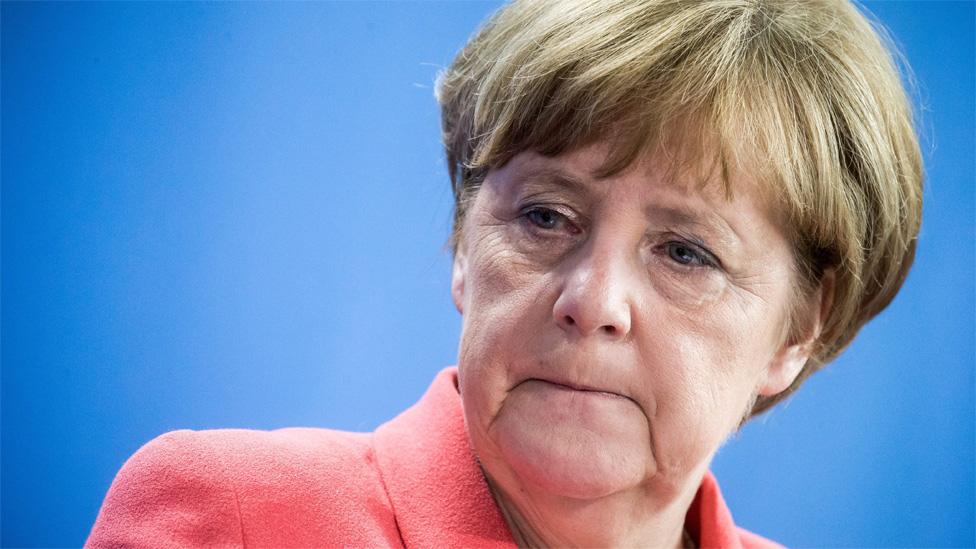Corbyn: EU migration 'an opportunity'
- Published
Speaking to BBC Wales political editor Nick Servini, Labour leader Jeremy Corbyn said immigration "works both ways".
Free movement around the European Union should be seen as an "opportunity" rather than a problem, Labour leader Jeremy Corbyn has said.
Speaking ahead of a Labour In rally at Cardiff City Hall, he said migration "enhanced the cultural life of everybody".
Earlier Labour grandee Peter Hain said there was confusion among the party's voters on what its Europe position is.
But Iain Duncan Smith said Labour "never got in touch with the argument".
Mr Corbyn has faced criticism for his role in the campaign. He insisted on BBC Wales Today that he was "very clear" on his position: "I want to remain but I also want to see changes in the European Union."
He added: "But I also recognise that if we remain then we are able to keep up that trading relationship with Europe."
Asked about concerns traditional Labour voters had about levels of immigration, he said: "There are two million British people living in other parts of the European Union.
"There are a large number of European nationals living and working in Britain, in our NHS, transport system, education and everything else. It works both ways.
"I don't see it as a problem, or a fear, I see it as an opportunity, an opportunity for our young people to go and study and work in Europe, and vice versa. That enhances the cultural life of everybody."
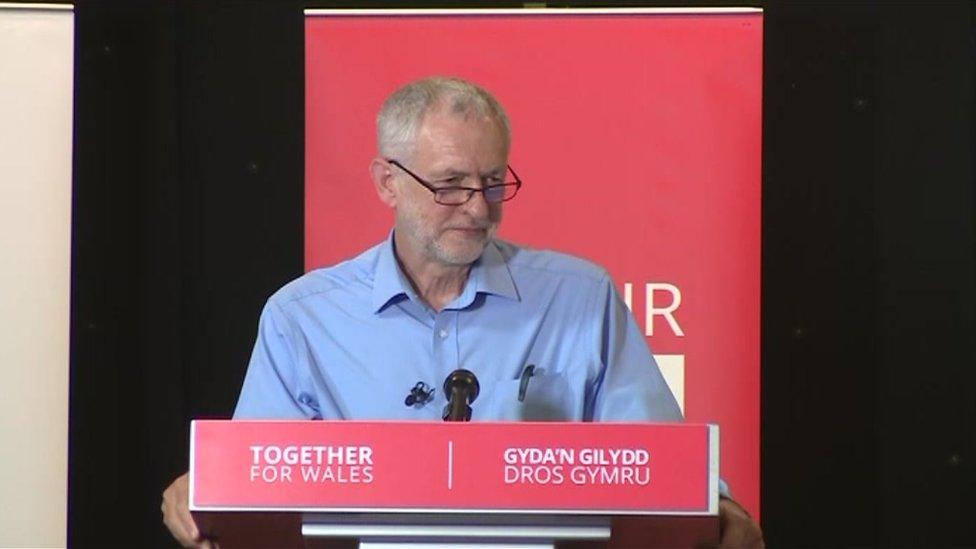
During a wide-ranging speech to hundreds of Labour party members at Cardiff City Hall, Mr Corbyn told activists: "There is a positive case to be made."
He said the benefits covered the economy, human and workers' rights and the environment.
He also kept up his attack on Chancellor George Osborne's economic policies and made no substantial reference to immigration in his speech, which lasted about half an hour.
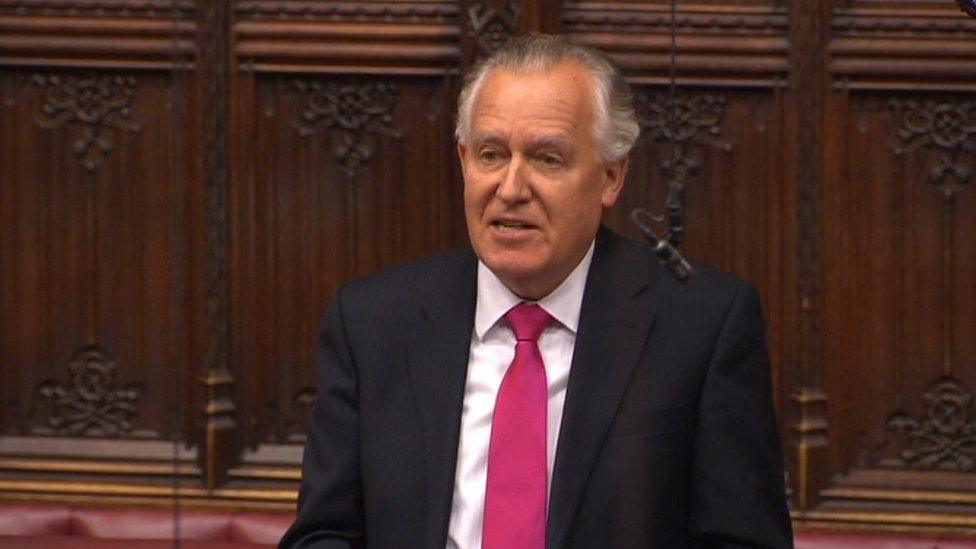
Earlier on Friday, Lord Hain told BBC Wales: "There is a great deal of confusion about what the Labour position is. There is a lot of activity going on but we need to do more.
"This is the right time to be really engaging people. We need to step up the pace.
"We need to have a major Labour drive, and that is what all our efforts are going to.
"Where that is happening, I am very confident about it. This is definitely winnable."
But he said this will depend on the extra work of Labour MPs, AMs and councillors getting out on the doorstep.
"If they do that then we will win this comfortably, if they do not it's going to be tough," he added.
'Turn-off'
Lord Hain's comments came after the GMB union's Tim Roache said Mr Corbyn has been a "half-hearted" supporter of the EU.
But the peer attributed the confusion among Labour voters to the dominance of Tory infighting in the campaign which he said had acted as a "complete turn-off".
Iain Duncan Smith said Labour "never got in touch" with the argument on the EU
Former secretary of state for work and pensions Mr Duncan Smith, who visited North Wales on Friday, said a leave vote is a "chance to put power back in the hands of local communities".
He told BBC Wales: "I think Labour never got in touch with the argument at all.
"They have a London-centric party that thinks that anyone who talks about migration is somehow a xenophobe."
He said "ordinary people" worry about "unfair competition from people who don't spend a lot of time here, have no commitments to family or to home and can undercut their wages".
"Labour's not listening," he said.
Vincent Bailey, a spokesman for Vote Leave Cymru, said: "Labour are having problems motivating their own supporters to come out and vote, because people understand that as part of the European Union we have no say about how many immigrants come to the UK and we have no say over immigration policies from Europe."
Prior to the rally in Cardiff, the UK Labour party leader Jeremy Corbyn said if Britain left the EU the impact would be felt in Wales "more than anywhere else in the UK and could be devastating."
He added: "While there is a lot of uncertainty about what would happen if Britain votes to leave the EU, the one thing we do know is that it would be a Tory government intent on scrapping rights for working people, and that has slashed Wales' budget that would be charged with negotiating our exit."
- Published2 June 2016
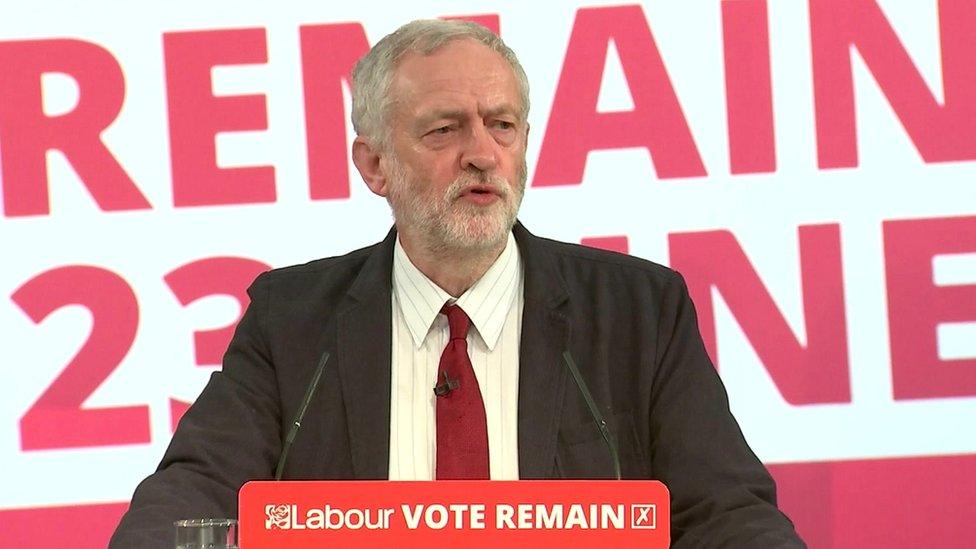
- Published30 December 2020

- Published29 April 2016
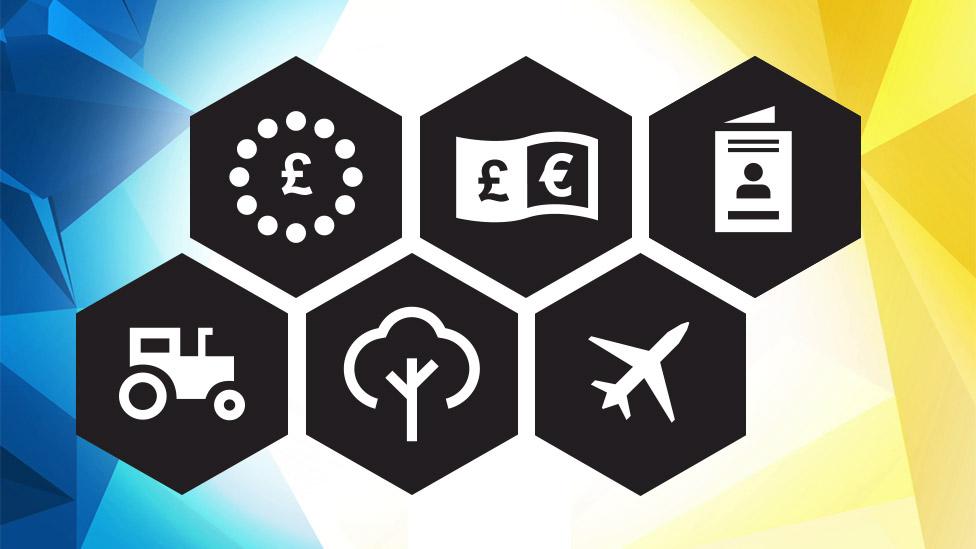
- Published2 June 2016
